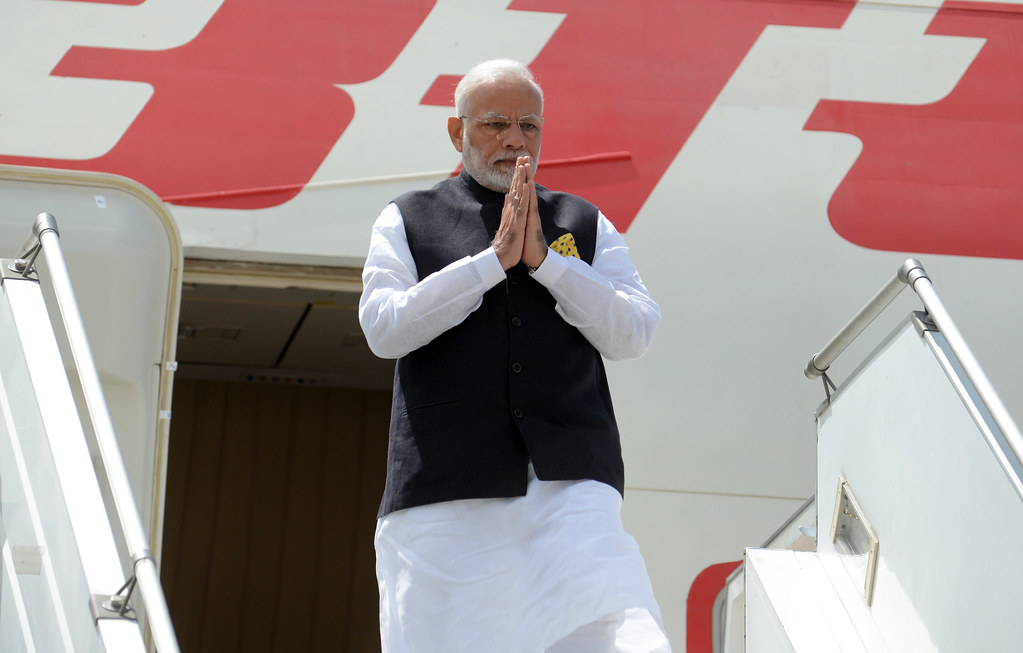After decades of religious and political turmoil, recent changes to India’s Constitution have threatened to disrupt the fragile security of millions of the country’s citizens, foreshadowing a dangerous shift toward authoritarianism.
On August 5, 2019, India overturned Article 370 and Article 35A of the Indian Constitution on the status of Jammu and Kashmir, depriving the mountainous regions of the historical autonomy they have enjoyed since the British Partition of India more than 50 years ago. In an unprecedented crackdown, Indian troops have moved into the region, arresting thousands of Kashmiris, suspending most Internet and electronic communications, and imposing a strict curfew on the region’s populace. More than 3,000 people have been detained, from lawyers and activists to local politicians.
The constitutional change has stripped Kashmir’s legislature of its ability to make residency rules. As a result, the Indian government can now drastically change the demographics of the Muslim-majority region, raising concerns about exacerbated tensions between Kashmir’s Muslim and Hindu citizens.
The removal of Kashmir’s special status fulfills one of Prime Minister Narendra Modi’s campaign promises to his Hindu Bharatiya Janata Party. Modi has stated that the changes are intended to further the “economic development” and “legislative efficiency” of a state which has allegedly lagged behind the rest of the country. However, Modi’s opposition have decried the government’s authoritarian actions as an attack on Indian democracy.
A Hidden Agenda
The imposition of direct rule from Delhi in Kashmir is not the only case of its kind. In a recent national address, Modi affirmed his confidence that the Islamist insurgency in Kashmir would be put down and that the Kashmiri economy would prosper as a result. Modi’s mention of an Islamist insurgency suggests a hidden agenda behind the recent events.
Modi’s BJP recently released an updated version of the National Register of Citizens—a list cataloging all legal residents of the state of Assam. However, the list excluded almost two million people, including legislators and decorated war veterans, who now have to prove their citizenship or face being placed into mass detention camps.
The government claims that the register only targets illegal immigrants, but critics believe that the register intends to remove Assamese Muslims who have lived legally in the state for decades. While the NRC was established to detect undocumented immigrants from Bangladesh, the register has been utilized by the BJP to further its religious rhetoric. Now critics claim that the BJP government is capitalizing on local Assamese desires to expel foreigners to further its own anti-Muslim agenda. After realizing that even Hindu individuals were affected by the register, the BJP introduced the Citizenship Amendment Bill to grant citizenship to Hindu, Sikh, and Buddhist immigrants from neighboring countries. The exclusion of Muslim immigrants in this list hints at the party’s true intentions in updating the National Register.
What does this signal for the rest of India?
The Indian government’s actions in Assam and Kashmir paint a nationalistic trend towards authoritarianism and a push for religious homogeneity throughout India. Assam and Kashmir have one notable commonality—substantial Muslim populations. It is no secret that many of Modi’s supporters are Hindu nationalists who have expressed concerns about Pakistan potentially supporting militant separatists within Indian borders. Given the BJP’s transparency with regards to its Hindu nationalistic policies, its drastic actions in Jammu and Kashmir as well as Assam suggest that India’s crackdown in these regions is not a matter of economic growth or illegal immigration, but rather of religious intolerance.
Since most people left off the NRC only possess Indian citizenship, updating the National Register will leave them stateless and would be a violation of international humanitarian law. Similarly, Kashmiris’ allegations of human rights abuses suggest that there is little Narendra Modi and the BJP would not do to make Indian Muslims second-class citizens. In fact, the anti-Muslim public discourse among the ruling party eerily resembles that of Myanmar in 2017, when 750,000 Muslim Rohingya individuals were persecuted and stripped of their Burmese citizenship.
Furthermore, Modi’s Home Minister, Amit Shah, has promised to continue expelling Muslim “infiltrators” from the rest of India, implying that Assam was only the beginning of a nationwide movement against an entire demographic. If the NRC truly is extended to the entire country, the nation’s 180 million Muslims—who comprise more than 13 percent of the population—risk losing their Indian citizenship.
While the world’s most populous democracy is just getting its toes wet with this wave of crackdowns, the question remains whether the Modi administration plans to dive completely into authoritarianism.
Image Source: Flickr/G20 Argentina



